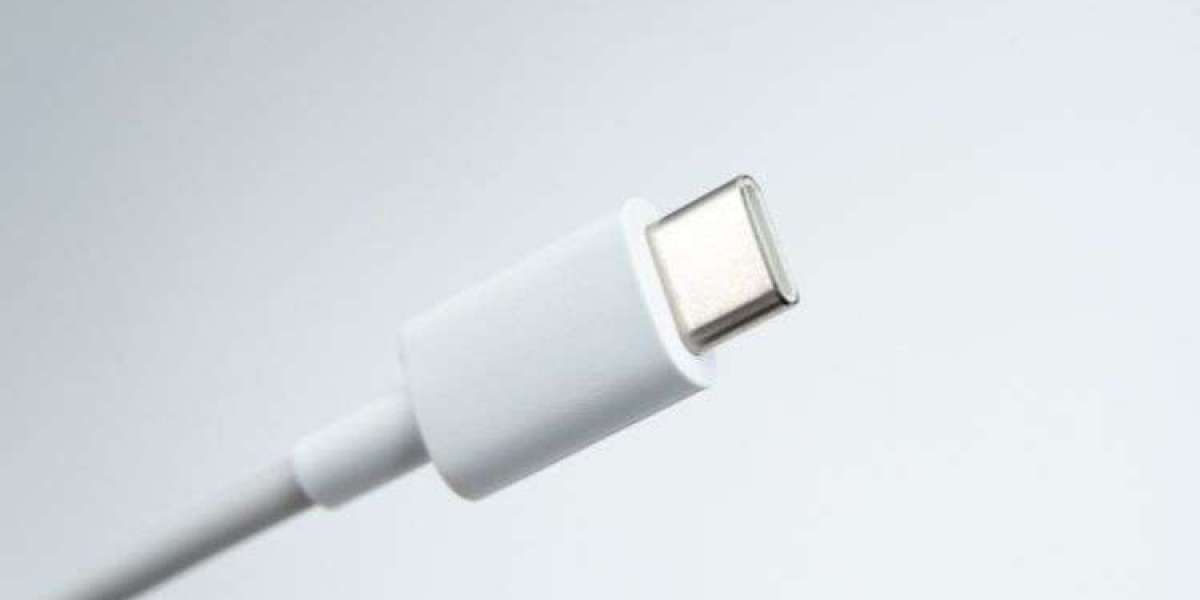The India Power Delivery C-Type USB Charger Market size is expected to grow at a CAGR of 9.10% between 2024 and 2032, driven by the increasing usage of smart devices and the need for efficient charging. With smartphones, laptops, tablets, and a wide range of other gadgets becoming an integral part of our lives, the demand for reliable and fast charging solutions has never been higher. However, with this demand comes the challenge of choosing the right USB-C charger for your specific devices.
In this blog post, we will explore the essential factors to consider when selecting a USB-C charger for your devices in India. Understanding the nuances of USB-C chargers, their compatibility, safety features, and power delivery capabilities will empower you to make informed decisions and ensure the longevity of your gadgets.
Understanding Your Device's Charging Needs
Before delving into the world of USB-C chargers, it's crucial to have a clear understanding of your device's charging needs. Different devices come with varying power requirements, and using an incompatible charger can lead to suboptimal charging speeds or, in worst cases, damage to your devices.
Smartphones, laptops, tablets, and other gadgets may have different wattage requirements. For instance, while a smartphone may require an 18W charger, a laptop might need a more powerful 60W or 100W charger. Always consult your device's user manual or specifications to determine the appropriate wattage for efficient charging.
Key Considerations When Choosing a USB-C Charger
Wattage and Power Output Capabilities
One of the most critical factors to consider when selecting a USB-C charger is its wattage and power output capabilities. USB-C chargers come in various power delivery levels, ranging from 18W to 100W or more. It's essential to match the charger's wattage with your device's requirements for optimal charging performance.
For instance, if you have a smartphone that supports fast charging, ensure that the charger you choose provides the required wattage for quick and efficient charging. Conversely, using a charger with lower wattage may result in slower charging times.
Compatibility with Device and Cable Standards
Compatibility is key when it comes to USB-C chargers. Ensure that the charger you select is compatible with both your device and the cable you intend to use. USB-C is a versatile standard, but not all USB-C chargers and cables are created equal.
Some devices also support USB Power Delivery (PD), a universal charging standard that allows for faster and more efficient charging. Check if your device is PD-compatible and choose a charger that supports PD for optimal performance.
Additionally, it's essential to use certified cables to avoid compatibility issues and ensure safe charging. Poor-quality cables may not deliver the necessary power or could cause damage to your devices.
Safety Features and Certifications
Safety should be a top priority when choosing a USB-C charger. Look for chargers that have undergone safety certifications, such as UL certification. These certifications ensure that the charger meets specific safety standards and has undergone rigorous testing.
Chargers with built-in safety features, such as surge protection, overcurrent protection, and temperature control, offer an extra layer of protection for your devices. Investing in a charger with these features can safeguard your gadgets from potential damage caused by power surges or overheating.
Tips for Selecting the Right USB-C Charger
Now that you understand the key considerations let's explore some practical tips to help you select the right USB-C charger for your devices in India:
1. Research and Read Product Reviews
Before making a purchase, take the time to research different USB-C chargers available in the market. Read product reviews from reputable sources and customer feedback to get insights into their performance, reliability, and durability. Real-world experiences shared by other users can be valuable in your decision-making process.
2. Consider Brand Reputation and Customer Support
Opt for chargers from well-established and reputable brands known for their quality and reliability. Established brands often have better customer support and warranty policies, providing peace of mind in case of any issues with your charger.
3. Look for Warranties and Return Policies
Check if the charger comes with a warranty. A warranty not only indicates the manufacturer's confidence in their product but also provides you with coverage in case of defects or malfunctions. Additionally, review the return policy of the retailer to ensure hassle-free returns if necessary.
4. Evaluate Pricing and Quality Trade-Offs
While it's essential to stay within your budget, avoid compromising on quality to save a few bucks. Investing a bit more in a reliable charger can save you money in the long run by protecting your devices from potential damage.
5. Seek Recommendations from Tech Experts or Forums
Engage with tech communities or forums to seek recommendations from experienced users and tech experts. They can offer valuable insights and suggest chargers that have proven to be reliable in real-world scenarios.
Case Studies and Examples
Let's dive into a few case studies to illustrate the importance of choosing the right USB-C charger:
Case Study 1: The Smartphone Dilemma
Consider a scenario where a user with a fast-charging smartphone decided to use a lower-wattage charger to save money. While the charger worked, it resulted in significantly slower charging times, causing inconvenience during crucial moments when a quick battery boost was needed.
Case Study 2: The Laptop Mishap
In another case, a laptop user mistakenly used a smartphone charger with a higher wattage than recommended. This led to overheating issues, and the laptop's battery performance began to degrade over time. Eventually, the user had to replace the laptop battery, incurring additional expenses.
Case Study 3: The Importance of Safety Features
A user invested in a USB-C charger with advanced safety features and certifications. During a power surge, the charger's surge protection kicked in, preventing any damage to the connected devices. This user's devices remained safe and continued to function optimally.








